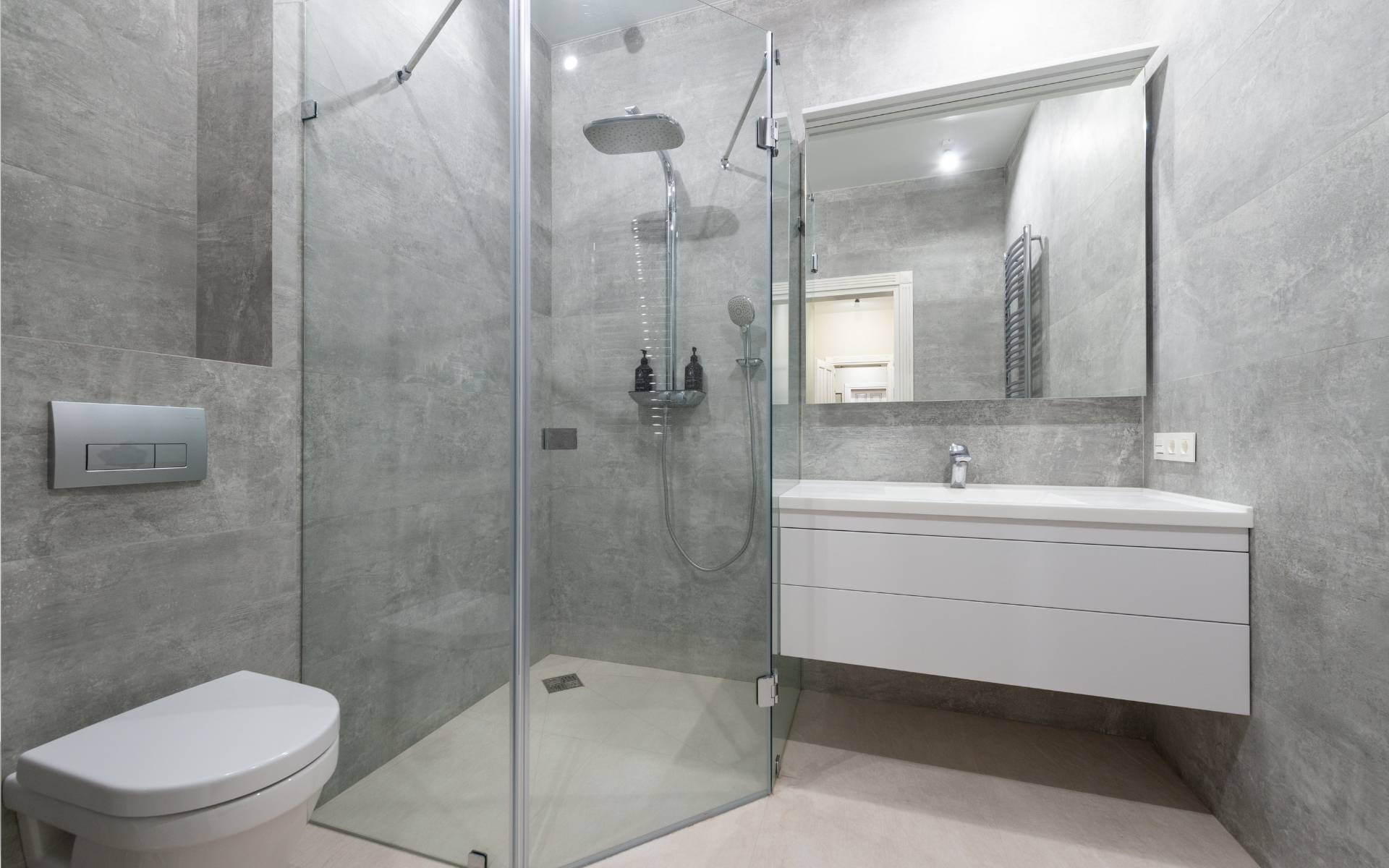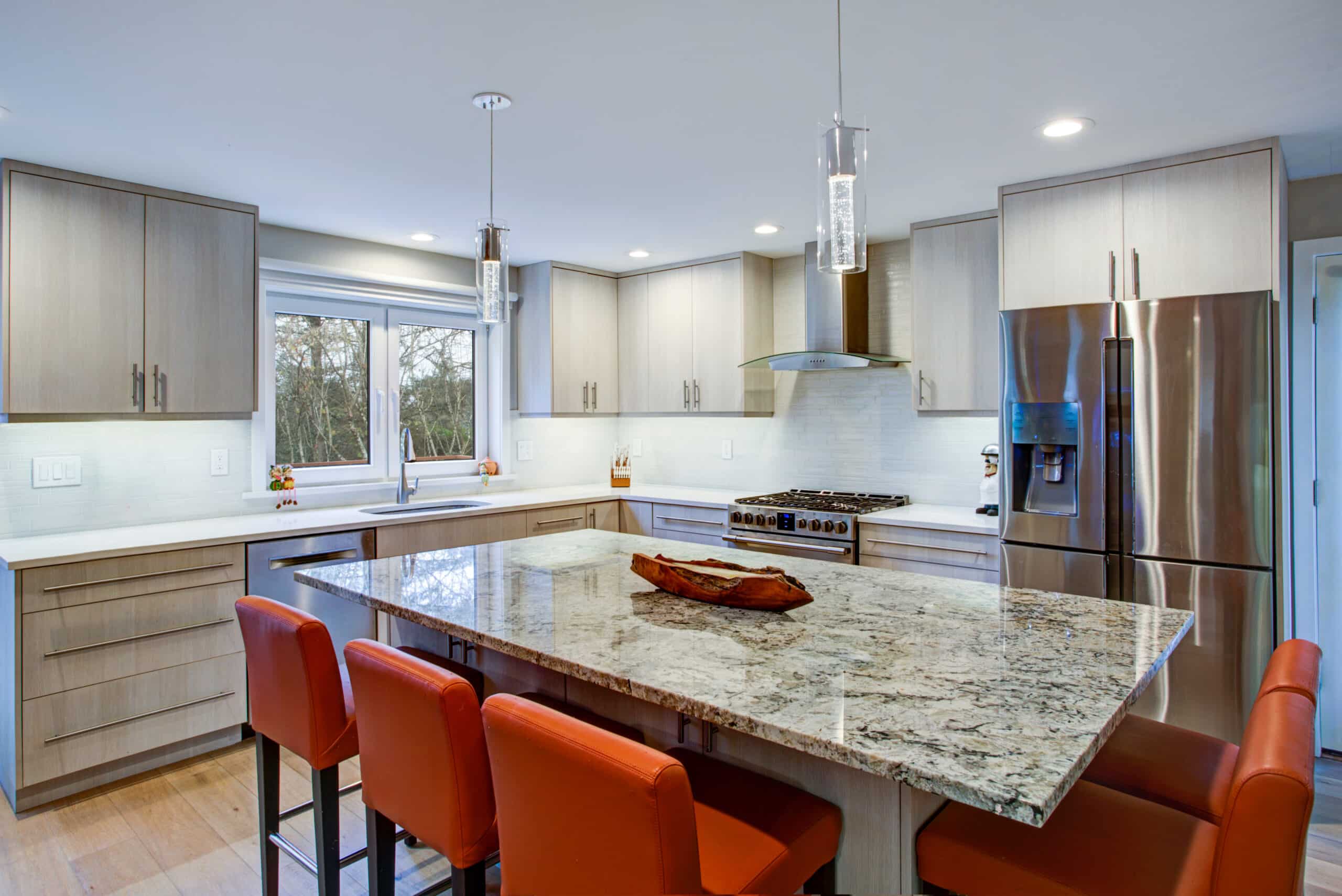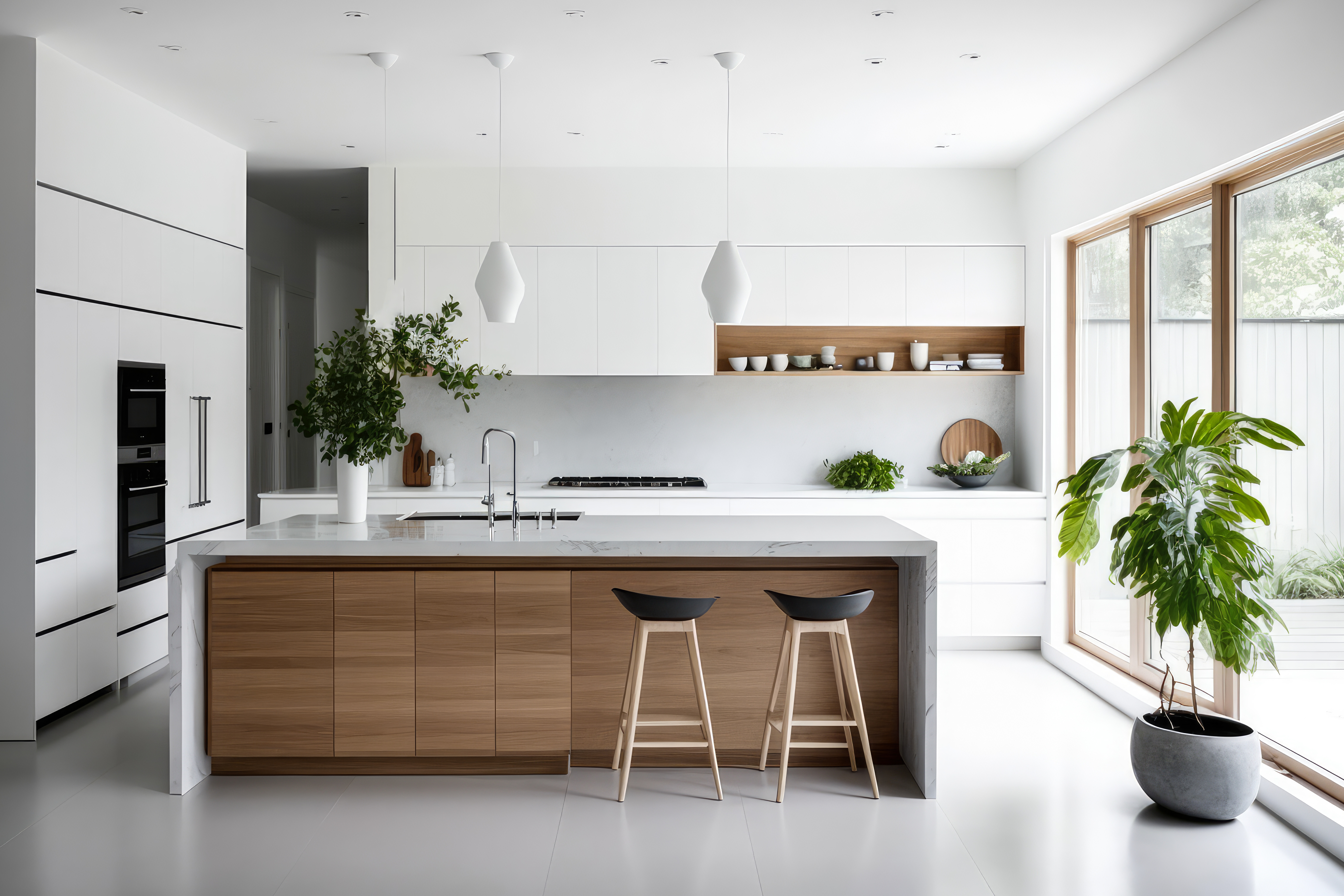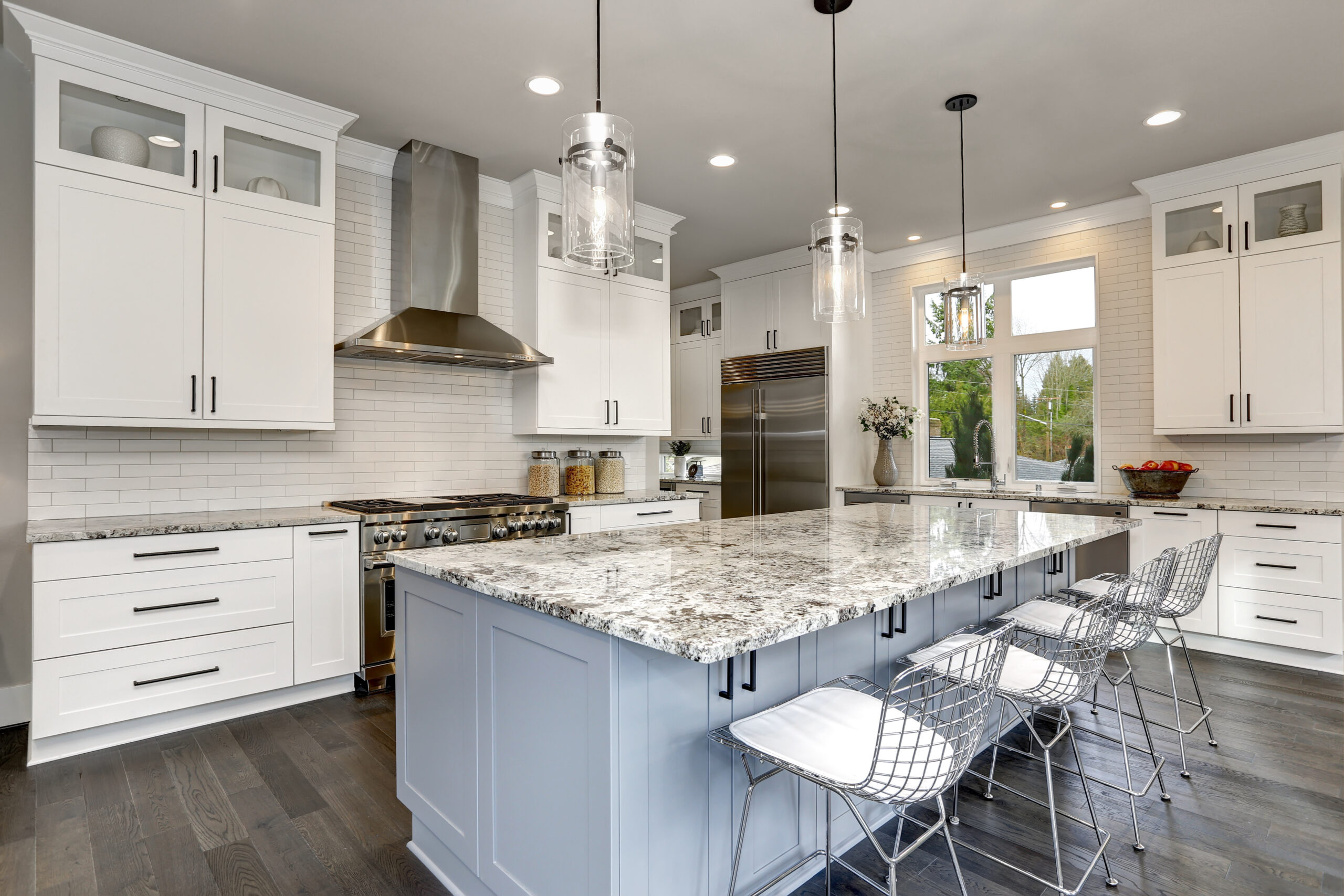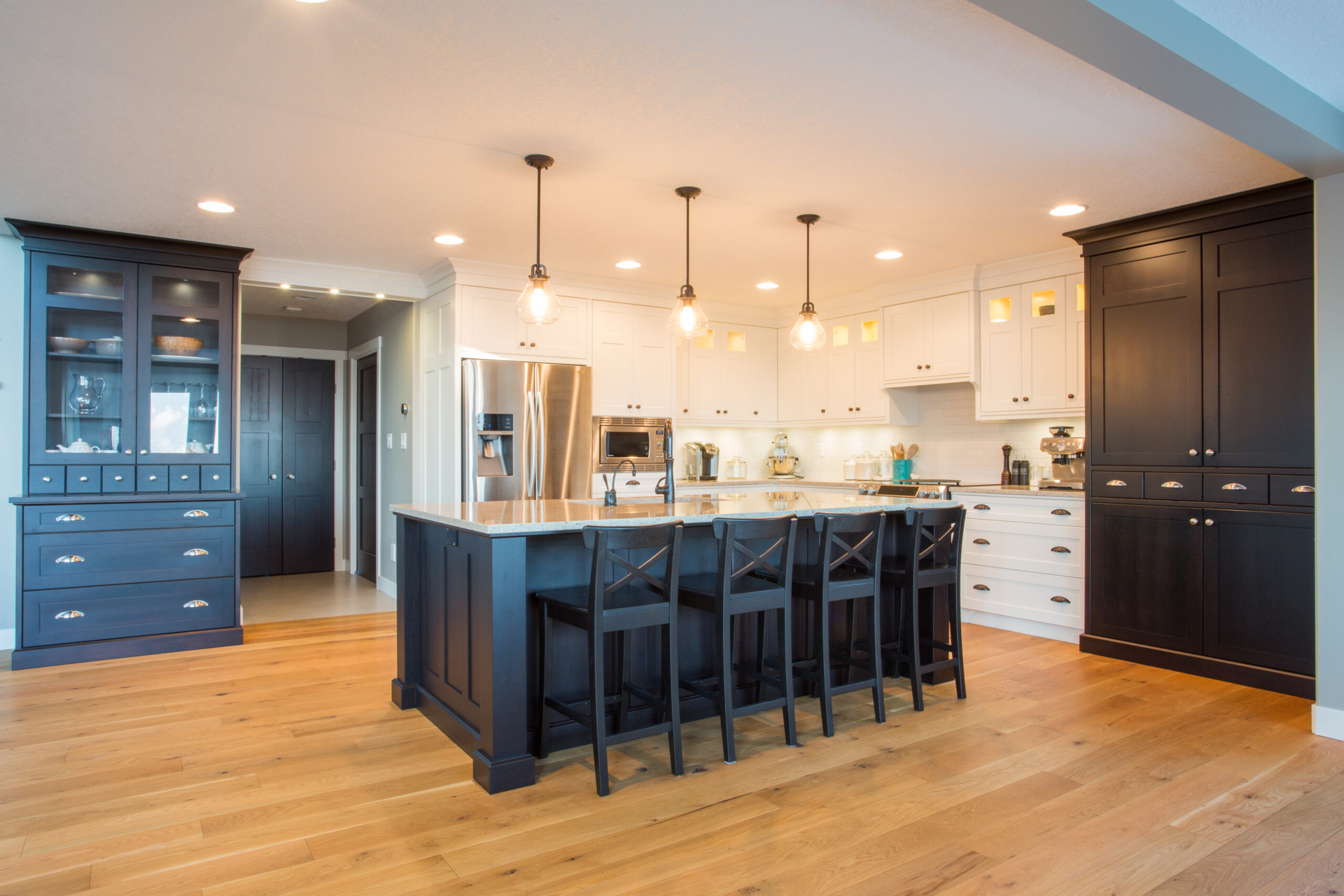Creating a shower remodeling budget feels like navigating a maze of endless possibilities and conflicting price quotes. You want concrete numbers before committing to anything, and you need to understand what drives costs up or down. Most homeowners underestimate their total investment by 20-30% because they focus only on obvious expenses while overlooking the details that add up quickly.
As a trusted kitchen and bath remodeling company, we have guided hundreds of New Jersey homeowners through successful shower renovations. We’ve seen every type of project imaginable, from simple fixture updates to complete luxury transformations. After years of helping families, we know exactly what questions you’re asking and which surprises catch people off guard. Let’s walk through everything you need to build a realistic and comprehensive shower renovation plan.
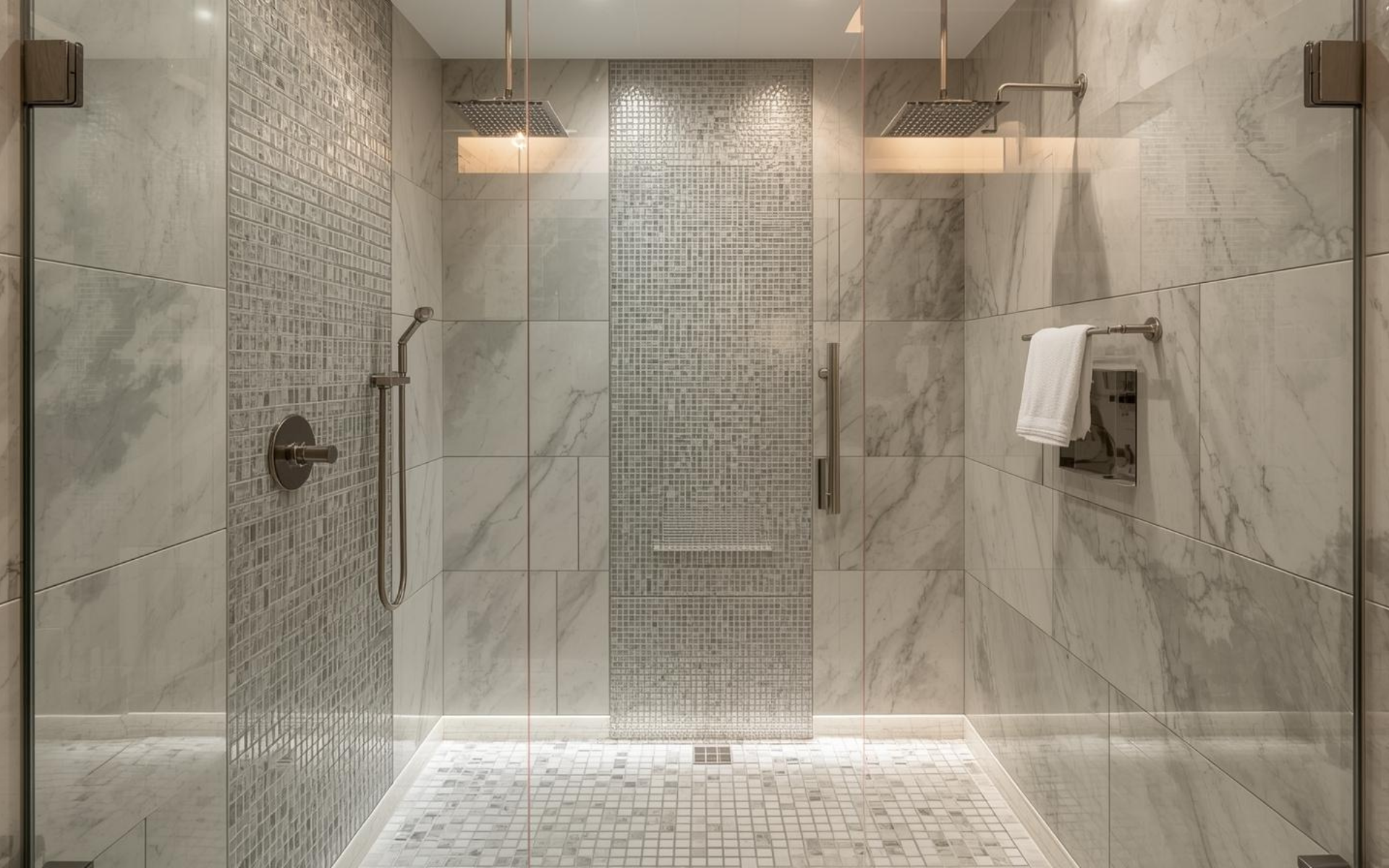
What You Might Spend on Your Shower Remodel
The numbers you see online often don’t tell the whole story. According to Angi‘s comprehensive 2025 data, shower remodels average $7,000, but your actual costs depend on choices you haven’t even considered yet.
Your project could cost as little as $2,000 for basic updates or reach $15,000 for a luxury transformation. The wide range exists because “shower remodel” means different things to different homeowners. Some want new fixtures and fresh caulk. Others envision a spa-like retreat with steam features and custom tile work.
Here’s what drives costs up or down: your current bathroom’s condition, the materials you choose, how much plumbing you’ll change, and whether you’re doing a simple refresh or complete overhaul.
Budget-Friendly Projects ($2,000 – $4,000) You’re replacing fixtures, updating hardware, and maybe installing new shower doors. The existing shower structure stays put, and you’re working with standard materials.
Mid-Range Renovations ($4,000 – $8,000) This range covers most homeowner projects. You might install a prefab shower unit, upgrade to better fixtures, or do a tub-to-shower conversion. Some tile work and plumbing adjustments fit here too.
High-End Transformations ($8,000 – $15,000+) Custom tile work, frameless glass enclosures, multiple shower heads, and luxury materials push projects into this range. You’re essentially building a new shower from scratch.
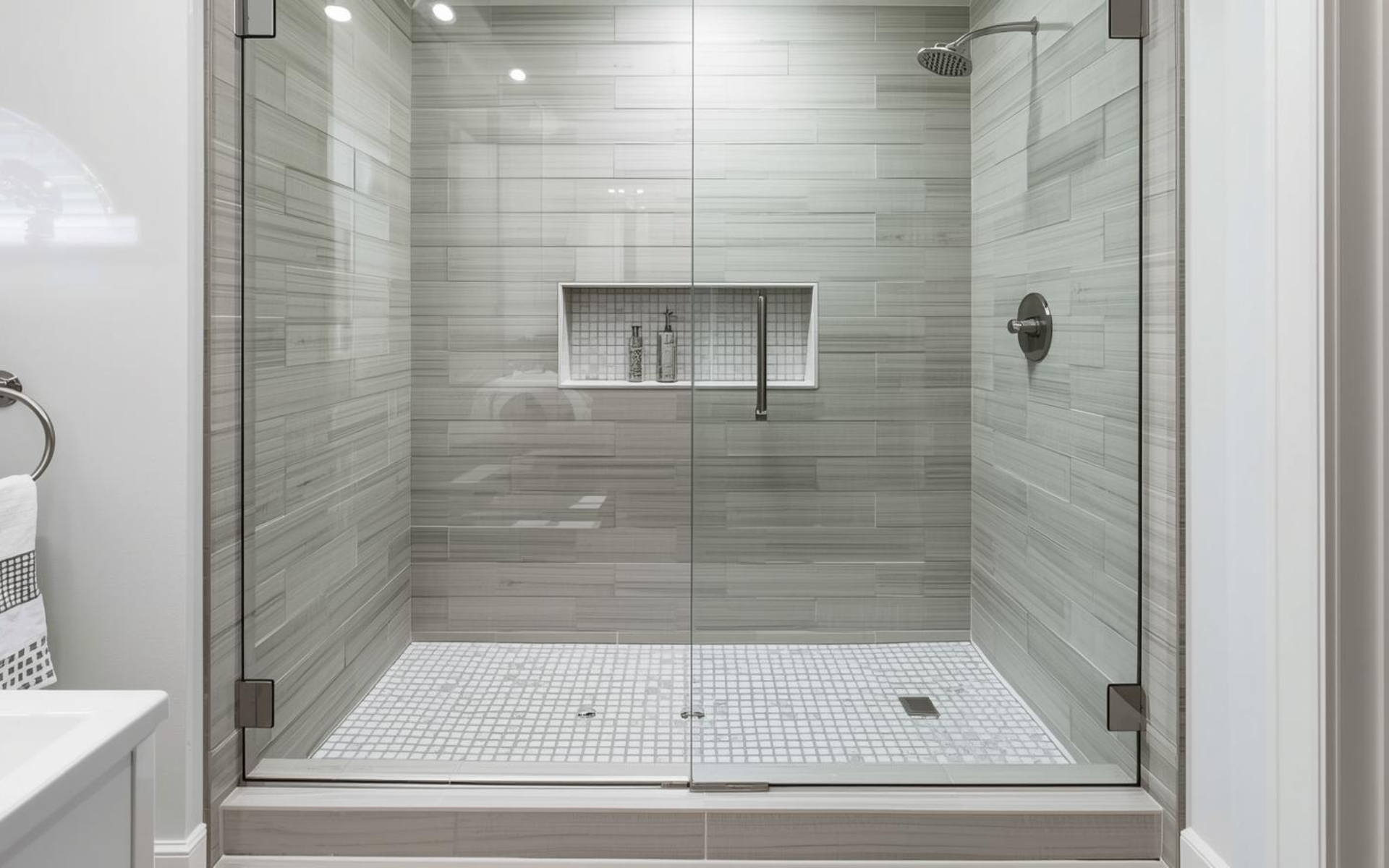
Project Type Breakdown for Budgeting for a Shower Remodel
Prefabricated Shower Systems
These kits include everything you need in one package:
Kit materials: $200 – $8,000
Professional installation: $400 – $1,000
Total investment: $600 – $9,000
The beauty of prefab systems lies in their predictable costs. You know upfront what you’re getting, and installation typically takes 1-2 days. Higher-priced kits offer better materials, more size options, and upgraded fixtures.
Walk-In Shower Remodel Cost in 2025
Walk-in showers require more planning but deliver excellent results:
Basic acrylic unit: $350 – $2,000
Mid-range fiberglass system: $1,000 – $4,000
Custom tiled design: $3,000 – $8,000
Walk-in showers work particularly well for accessibility needs. If someone in your home uses a walker or wheelchair, this investment pays dividends in daily comfort and safety.
Tub-to-Shower Conversions
Converting your bathtub makes financial sense when existing plumbing works for your new design:
Standard conversion: $1,500 – $5,000
Premium materials and features: $5,000 – $8,000
Average return on investment: 60%
One consideration: if this is your home’s only bathtub, the conversion might hurt resale value. Families with young children often prefer at least one tub in the house.
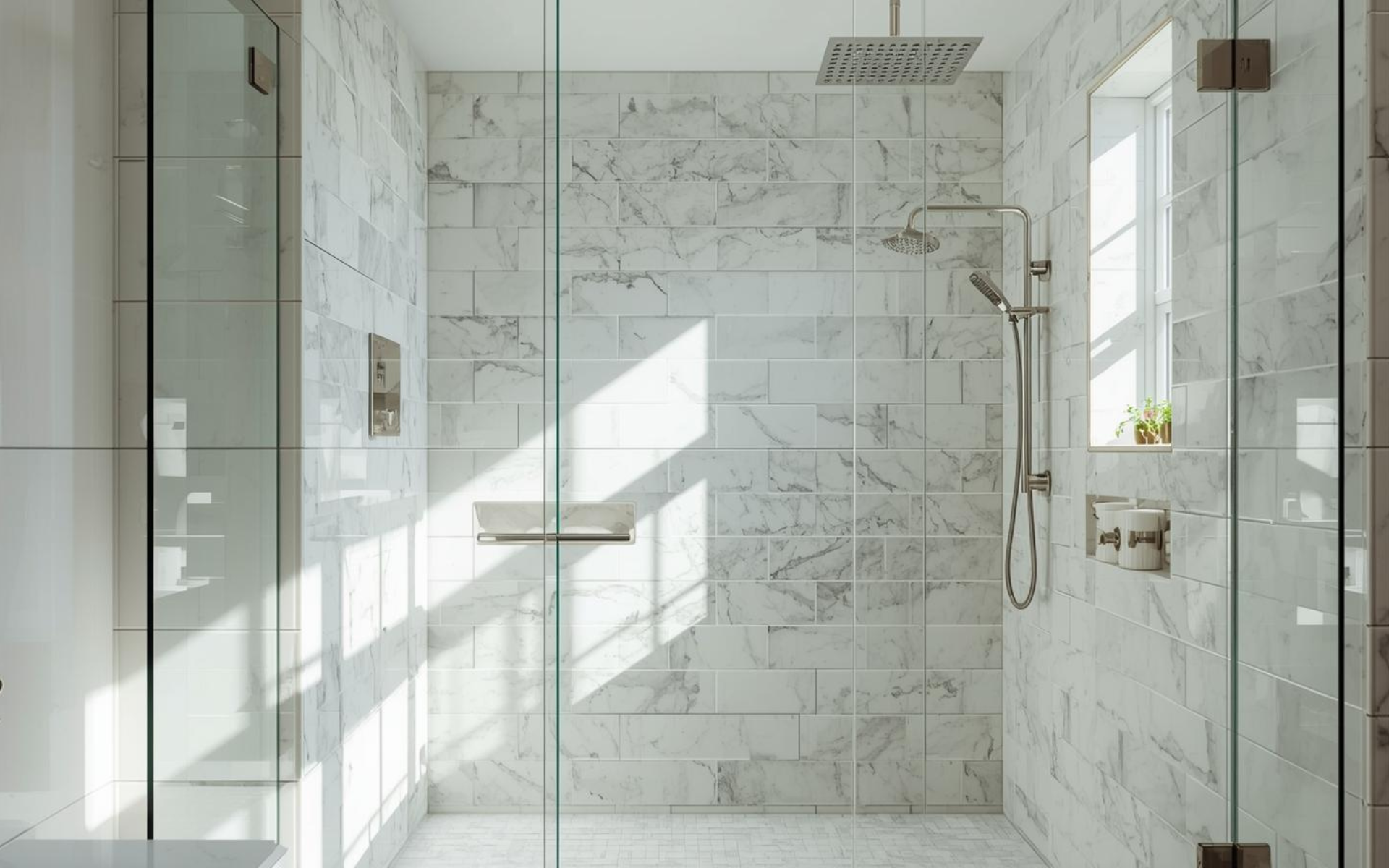
Breaking Down Individual Costs for Shower Budgeting
Understanding each component helps you make informed decisions about where to spend and where to save. Every shower remodel involves multiple elements, and costs add up quickly when you’re not paying attention.
Shower Doors and Enclosures
Your enclosure choice dramatically affects both cost and appearance:
Basic framed doors: $600 – $1,000
Semi-frameless options: $800 – $1,500
Frameless glass systems: $1,000 – $3,300
Frameless doors look stunning but require precise measurements and professional installation. They’re worth the investment if your budget allows, as they make any shower look more expensive.
Plumbing Fixtures and Controls
Standard showerhead and faucet set: $50 – $300
Mid-range fixtures with better finishes: $300 – $600
High-end systems with multiple functions: $600 – $900
Don’t skimp on fixtures you’ll use daily. A quality showerhead and reliable temperature control enhance every shower experience.
Structural Components
Shower pan installation: $300 – $800
Waterproofing and prep work: $200 – $500
Ventilation improvements: $100 – $400
These behind-the-scenes elements prevent expensive problems later. Proper waterproofing and ventilation protect your investment for decades.
Strategies for Shower Renovation on a Budget
Every homeowner wants maximum value from their renovation investment. The key is understanding where to spend your money for the biggest impact and where you can save without compromising quality or longevity.
Focus on Daily-Use Items First. Spend more on fixtures you’ll touch every day. A reliable, comfortable showerhead matters more than expensive tile you’ll barely notice. Quality faucets and controls last longer and provide better water temperature consistency.
Invest in Proper Installation. Cutting corners on waterproofing or plumbing leads to expensive repairs later. Even if you’re DIYing other aspects, consider hiring professionals for plumbing modifications and waterproofing.
Choose Materials Strategically. Use premium materials as accents rather than covering entire walls. A glass tile border or natural stone feature strip adds elegance without blowing your budget.
Keep Existing Plumbing Locations. Moving shower valves, drains, or supply lines adds $1,500 – $3,500 to any project. If your current layout functions well, work with it rather than against it.
Handle Demolition Yourself. Removing old fixtures, tile, and trim saves $500 – $1,500 in labor costs. You’ll need proper tools and disposal plans, but this work doesn’t require special skills.
Time Your Project Strategically. Contractors often offer better rates during slower seasons. Winter and early spring bookings sometimes cost 10-15% less than peak summer scheduling.
Mix Material Price Points. Use expensive tiles as accent strips and cover large areas with more affordable options. This approach delivers custom looks at prefab prices.
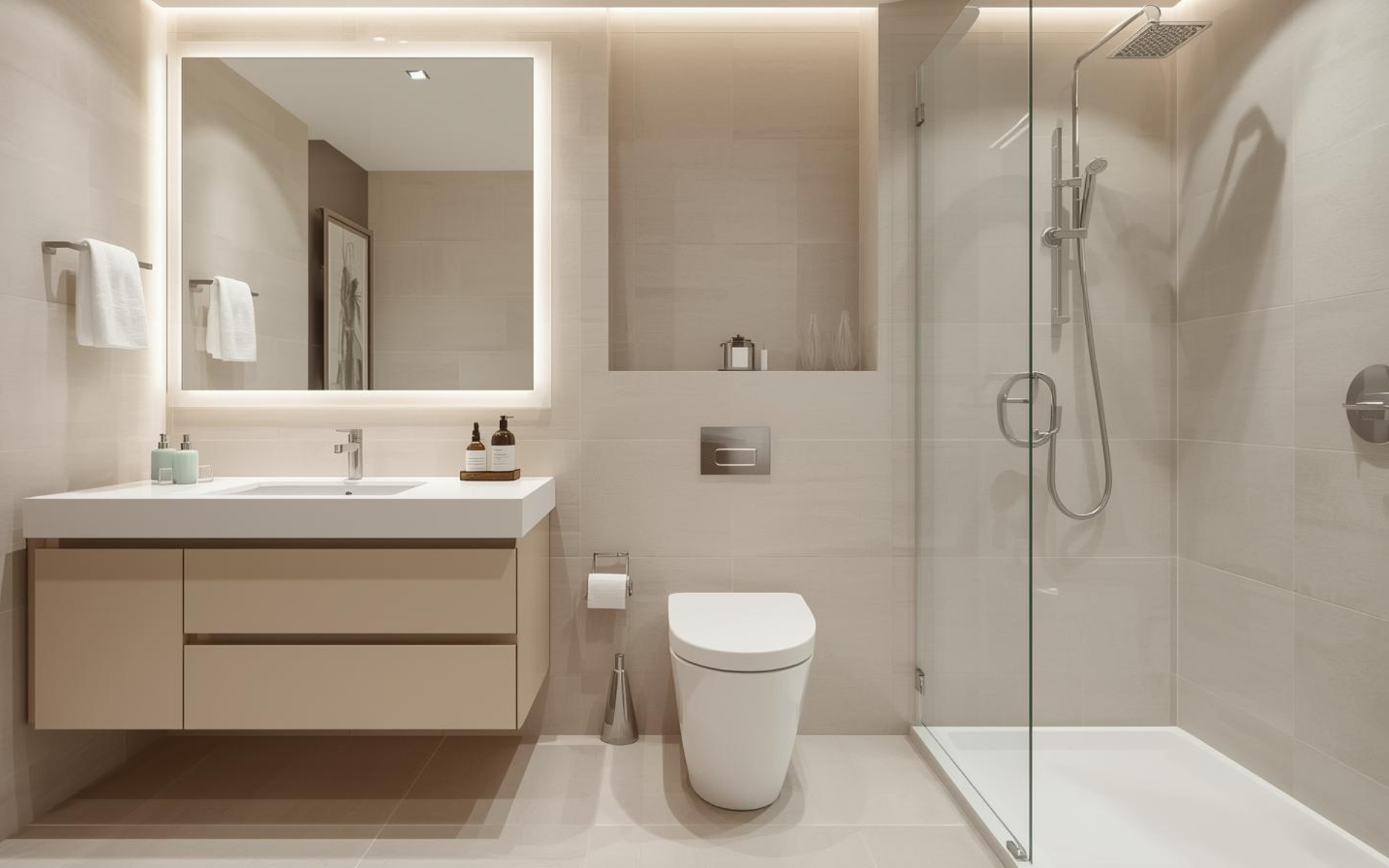
Professional Installation vs. DIY: Making the Right Choice
The decision between professional installation and DIY work depends on your skills, available time, and project complexity. Both approaches can work, but each comes with specific considerations that affect your shower remodeling budget.
Realistic DIY Project Costs and Requirements
You’ll need to factor in tool rentals for tile saws and demolition equipment, permit fees that are still required for DIY work, disposal costs for debris removal, and material waste since mistakes happen during learning. The time investment runs 40-80 hours for a complete shower renovation, which means weekends and evenings for several months.
DIY projects that make sense include replacing shower fixtures with identical configurations, installing prefab shower kits in existing openings, cosmetic updates like new shower doors or hardware, and painting and caulking refreshes. These projects don’t require specialized skills or major structural changes.
Professional Installation Benefits and Costs
This includes design consultation and material recommendations, permit acquisition and inspection scheduling, warranty coverage on labor and materials, project timeline guarantees, and problem-solving for unexpected issues. When professional installation pays off, you’re dealing with plumbing modifications or relocations, custom tile work or complex patterns, electrical work for lighting or ventilation, structural changes or accessibility modifications, or warranty requirements for materials.
Professional service coordination includes general contracting, plumbing specialists, tile installation experts, and electrical work. The key benefit is having one point of contact who manages the entire project timeline and quality.
Making the Best Decision for Your Situation
Choose DIY when your project uses standard, straightforward materials, no plumbing or electrical changes are required, you have previous renovation experience, timeline flexibility allows for learning curves, or budget constraints make professional help impossible.
Hire professionals when water damage or structural issues are discovered, local codes require licensed contractor work, your time is limited or valuable, warranty coverage is important to you, or the project complexity exceeds your skill level.
Planning Your Shower Remodeling Budget Successfully
Every shower renovation involves expenses beyond the obvious materials and labor. Understanding these additional considerations prevents budget surprises and helps you plan more accurately.
Unexpected Expenses You Should Anticipate
Once demolition begins, hidden problems often surface. Water damage repairs, structural issues, mold remediation, and electrical upgrades can emerge unexpectedly. Budget an extra 15-20% of your project cost for these possibilities because even well-maintained bathrooms can hide problems behind walls.
Most municipalities require permits for shower renovations. Basic fixture replacement needs permits, plumbing modifications require permits, and major renovations definitely need permits. Check your local requirements early since some areas require multiple inspections throughout the project, adding time and potential delays.
Temporary solutions during construction include alternative shower arrangements, possible hotel stays for major renovations, eating out more frequently due to dust and disruption, and additional cleaning needs. Plan for these inconveniences in both your budget and timeline.
Premium Upgrades and Luxury Features
Enhanced shower experiences come with additional costs. Rainfall showerheads, multiple body spray systems, digital temperature controls, and steam shower conversions all require additional plumbing and electrical work, increasing installation complexity beyond basic renovations.
Storage and convenience additions like built-in shower niches, corner shelving systems, fold-down shower seats, and grab bars enhance functionality but add to your budget. Lighting and ventilation improvements, including LED shower lighting, upgraded exhaust fans, and automatic humidity control, improve the space but require electrical work.
Long-Term Maintenance and Operating Considerations
Annual maintenance expectations include grout cleaning and resealing, fixture cleaning and minor repairs, and glass door treatments and cleaning. Factor these ongoing costs into your overall investment decision.
Energy and water usage considerations show that water-efficient fixtures reduce monthly bills, improved insulation lowers heating costs, and LED lighting uses significantly less energy than traditional options. These efficiency improvements often pay for themselves over time.
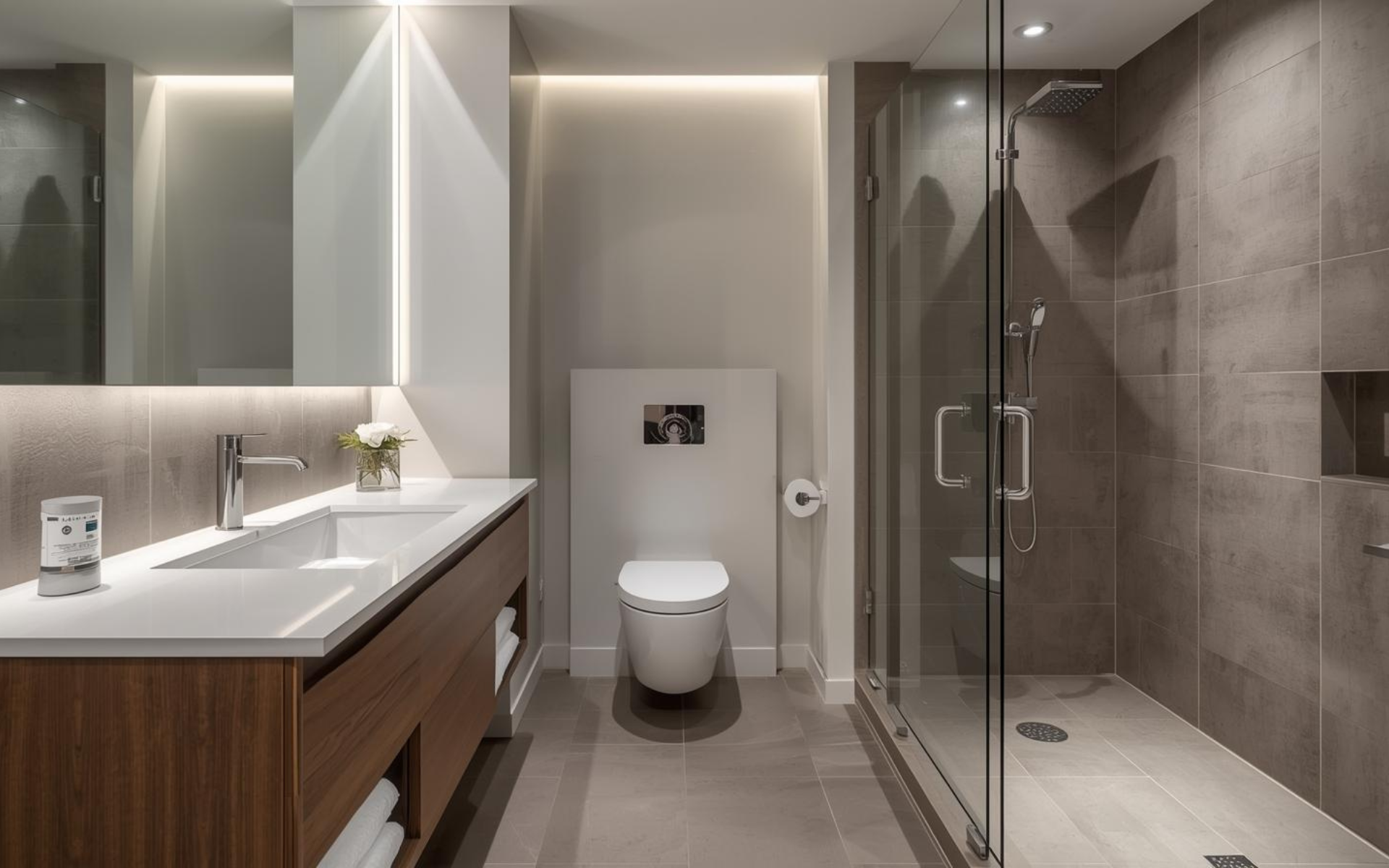
Making Your Shower Remodeling Budget Work for Your Goals
Creating a successful renovation means aligning your budget with your actual needs and lifestyle. The most expensive options aren’t always the best choices, and the cheapest solutions sometimes cost more in the long run.
Balancing Quality and Cost Effectively
Spend your money on elements that affect daily use and longevity. Quality plumbing fixtures, proper waterproofing, and durable surface materials pay dividends over time by preventing expensive repairs and providing years of reliable service. You can save without compromise on decorative elements, using expensive materials sparingly as accents while more affordable options cover large areas. Hardware finishes and decorative trim can be upgraded later without major construction.
Creating realistic timeline expectations helps you plan around the disruption. Simple fixture updates take days, prefab shower installation requires about a week, custom tile work needs two weeks, and complex renovations with plumbing changes take several weeks.
Planning for Future Changes and Flexibility
Even if accessibility isn’t currently needed, incorporating grab bar backing and curbless entries during construction costs little now but saves significantly later. Classic designs and neutral colors age better than bold patterns or trendy choices, allowing you to add personality through easily changed elements like accessories and hardware.
Consider maintenance requirements when selecting materials. Natural stone needs regular sealing, and glass surfaces show water spots more than textured options, so think about your cleaning preferences during material selection.
Working with Local Contractors and Suppliers
Get accurate quotes from at least three contractors. Compare not just total prices but specific line items, ensuring labor, materials, and timeline assumptions are clearly documented. Understanding contract terms includes change order procedures, material substitution policies, timeline guarantees, warranty coverage details, and payment schedules.
Local suppliers like Mudosi Kitchen and Bath offer personalized service and local expertise. We understand New Jersey building codes, coordinate with trusted local contractors, and provide ongoing support for your investment. Your shower renovation should enhance your daily routine and add value to your home.
Take time to visit our Parsippany showroom to see materials and options in person. Call us to discuss your specific project and budget. A well-planned shower remodeling budget considers all these factors while staying flexible enough to handle surprises. Focus on quality where it matters most, save strategically where possible, and work with professionals who understand your goals and constraints.

